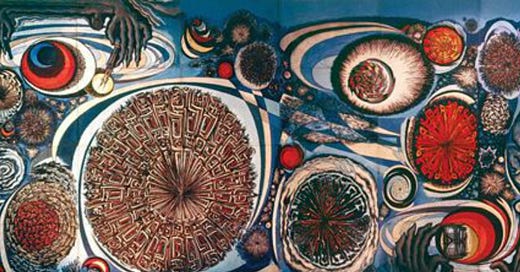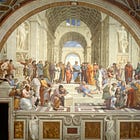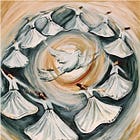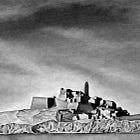
Introduction
This Substack, as I shared in my previous post ‘Why am I on Substack?’ was started as an experiment in self-discovery. I had been reading, journaling, and writing for myself for a long time and felt that I had to put it out there to make sense of it.
“I believe I came to this platform driven by an irresistible urge to write, to finally unburden myself of the thoughts and musings that had been accumulating in my journals over the years.”
— Author, Why am I on Substack?
The posts since then have not been planned in advance and I only start thinking about the next one days, sometimes weeks after the last one has been published. I tinker with a lot of them and finally select the one that I can’t stop thinking about.
The approach was intentional. The idea was not to create a space to attract notice but a corner to reflect and experiment — to see what comes out. And yet, I did want people to read what I wrote.
Since then, it has been five months, the half year is approaching soon, and I have published almost eighteen essays/posts/articles; whatever you might call them. Almost two per month, though not quite.
That’s approximately thirty-six thousand to forty thousand words published, taking an average of two thousand words per post.
And for each post, I typically discard more than twice of what I write — so that is ~110,000 to ~120,000 words written with the intention of publishing since the start of this Substack — that’s the length of an average book.
Given the open-ended approach of the writing process, the intention, from the start was always to stop, contemplate and reflect on my writings in about six months' time to see what they are saying, what they represent and what they mean.
Today I plan to do just that. But I also want to question, again, why I need to do this — why am I writing? Or more importantly, who am I writing for?
But before we jump in to answer those questions, let’s recap the two big themes that are emerging from my writing — how Words, Language, and Stories have to power to trap us; and how Love, Art, Imagination, and Literature have the power to free us from this trap.
I believe these themes hold the answer to the questions I asked earlier.
Words, Language, and Stories have the Power to Trap us
“Language disguises thought. So much so, that from the outward form of the clothing it is impossible to infer the form of the thought beneath it.”
Ludwig Wittgenstein - Tractatus Logico-Philosophicus, 4.002
Clearly the biggest theme coming out is the power of words, language and stories to trap us.
In one of my earliest posts, The Power of great Storytelling, I questioned, without giving answers, why readers read and more importantly why writers write. Through Yuval Noah Harari’s book Sapiens, I explored how we, as a species, are gravitated towards stories to find meaning as he says in one of his other books “Homo sapiens is a storytelling animal that thinks in stories rather than in numbers or graphs, and believes that the universe itself works like a story, replete with heroes and villains, conflicts and resolutions, climaxes and happy endings. When we look for the meaning of life, we want a story that will explain what reality is all about and what my particular role is in the cosmic drama. This role makes me a part of something bigger than myself, and gives meaning to all my experiences and choices.”
“Over the course of the book Harari compellingly shows how the ability of our species to tell stories: to create and believe in shared fictions such as Religions, Nations, Money, Ideologies (Communism, Socialism, Liberalism etc.) enabled us to increase the scale of our cooperation and essentially create the globalized world that exists today.”
— Author, The Power of great Storytelling
In Building an Emotional Vocabulary, moved from storytelling to the building blocks of stories — Words. I explored how challenging it is to use words to express our true emotions, thoughts, feelings: our true selves. And how our best option at finding this true self, if we indeed chose language as the tool, is to develop a broader, deeper and more nuanced vocabulary to express our emotions, our thoughts and our feelings.
“Emotional Intelligence in general is the catch-all term to describe our understanding and awareness of our emotions and our ability to influence them. Emotional Intelligence, in my experience, can only be developed by developing the ability to recognize and label our emotions appropriately before we can proceed to understand their causes and triggers, and being able to express and manage them in a healthy way.”
— Author, Building an Emotional Vocabulary
From using words to create stories, lies essentially, I shifted to the use of words to create and accumulate knowledge in the search for ‘truth'. In The Curse of Knowledge, I wrote how pursuit of knowledge, while traditionally viewed as a path to enlightenment and freedom, can lead to feelings of emptiness, fear, stupidity, confusion, loneliness, persecution, paralysis, and ultimately self-destruction.
“Truth is not a door to an open field where freedom awaits us but 'possibly' a narrowing corridor to a prison where self-destruction lies in store.”
— Author, The Curse of Knowledge
In Ivan, I used the middle Karamazov brother in Fyodor Dostoevsky's "The Brothers Karamazov," as an example to explore this ‘curse of knowledge.’ How it has the power to leave us paralyzed and mad.
“Ivan is essentially the tragic Nietzschean hero who, having realized the death of God, lacks the courage to create his own values and as a result is unable to pull himself out of his existential malaise.”
— Author, Ivan
In Rumi on Language, I used Rumi and Nietzsche’s philosophy on language to explore further why this happens. In the post, I discussed the inherent limitations of language which prevent us from seeing the truth; and which are in fact meant for us not to see the truth, lest we end up mad like Ivan.
“If words cannot grasp reality, leave an illusion of understanding and take away from us our ability to understand ourselves then where does that leave language?
Language, the collection of words through which we try to craft, chisel and give shape to more complex ideas and concepts.
Concepts which Socrates tries to grasp endlessly in Plato’s dialogues but never quite succeeds in ever defining conclusively. Concepts and ideas such as virtue, beauty, temperance, justice, courage, friendship, and ambition.
Reality seems ever elusive. The kernel which contains the truth is never reached.”
— Author, Rumi on Language
Language — the tool which we use to create stories. Stories which help us understand the world around us and ourselves.
Language — the tool which we use to build philosophies that sometimes give us power over others.
Language — the tool which we use to challenge the stories of others in search of the much vaunted Truth.
Language — which we use to create our own Truths, only to find them equally untenable, shaky and unstable as the stories we destroy with it:
“What then is truth? A movable host of metaphors, metonymies, and anthropomorphisms: in short, a sum of human relations which have been poetically and rhetorically intensified, transferred, and embellished, and which, after long usage, seem to a people to be fixed, canonical, and binding.
Truths are illusions which we have forgotten are illusions — they are metaphors that have become worn out and have been drained of sensuous force, coins which have lost their embossing and are now considered as metal and no longer as coins.”
— Friedrich Nietzsche, On Truth and Lies in a Nonmoral Sense
Language — the tool which can help free us but which very often ends up cursing us:
“There is no way out of the imagined order. When we break down our prison walls and run towards freedom, we are in fact running into the more spacious exercise yard of a bigger prison.”
— Yuval Noah Harari, Sapiens
Language, then, is a labyrinth filled with deceptive turns, dead ends, and illusions. The very tool we use to understand ourselves and the world can lead us astray, trapping us in narrow perspectives, flawed assumptions, and limiting beliefs.
And yet, even as we recognize the inherent constraints of language, we cannot help but keep searching for truth and meaning in its tangled web.
Is there a way out of this maze of words? Are we condemned to wander its twists and turns forever, or might there be some thread of Ariadne that can guide us to freedom and clarity?
Love, Art, Imagination, and Literature have the Power to Free us
“The universe is the Beloved, the lover veiled; The Beloved is alive, the lover is dead.
He whom Love has passed by; Is a wingless bird, unable to fly.
What can I say? I cannot tell left from right; Without my friend and his guiding Light!
The sickness of Love is from other illnesses apart; Love is the barometer of God’s mystery in our hearts.
Love, whether it be of this world or the other, Leads us to the Lord who is the Lord of all!
However must I describe Love’s qualities? When I am in it, my words aren’t adequate.
The tongue can throw some light on it, But Love is most illumined by silence.
When the pen was busy writing it was fluent; When it reached the word of Love, it broke down.
When it wanted to explain this word, It broke in two and the paper tore to shreds!
Reason like a donkey stuck in mud became; Only Love and Loving could give Love a name.”
— Rumi
It seems that there is a way, a way shown primarily by poets and artists. The secret, according to them, lies in the transformative power of love, art, and imagination — which forces which allow us to transcend the inherent limitations of language and access deeper truths about ourselves and the world.
In Alyosha, I used the youngest Karamazov brother in Dostoevsky's "The Brothers Karamazov," as an example to explore how love, faith, and belief can help us break free from the prisons created by language and knowledge.
“If there is a message from Dostoevsky in setting up the stories of these brothers thus, it is that life is harsh and becomes even more so under the microscope of the intellect. And that only through the act of unconditional and active love, which is irrational by its very nature, can we help change it for the better.”
— Author, Alyosha
In Rumi, I explored the theme of love further by examining Rumi’s metamorphosis from a seeker of knowledge, a religious cleric, to a Sufi poet, who could not stop writing odes to love.
“Indeed, reading Brad Gooch’s intensely readable Rumi's Secret: The Life of the Sufi Poet of Love, I realized that like others who traversed the desert of knowledge, Rumi tortured himself until the very end maintaining lengthy fasts, enduring sleepless nights, and periods of seclusion in search of the truth. His quest for knowledge, understanding, insight and wisdom was all-consuming.
Yet, amidst this spiritual turmoil, unlike many others, he found solace in his mystical practice and poetry. Poetry which sustained him, prevented him from burning out too young and allowed him to share his insights with the world.”
— Author, Rumi
In Why am I on Substack?, I explored Art as a way of breaking free from the curse of knowledge — from becoming The Underground Man. And in Is Substack birthing a counterculture movement?, I explored how Substack might be birthing a counterculture movement, by allowing writers, poets and artists to create and share their Art.
“Your truth can only be borne out of your own Art. And anyone who tells you otherwise is selling you something.”
In Imagination, I explored the significance of imagination in making us whole.
“The success of a man has always been determined by his ability to integrate his disparate parts - his passions, his intellect and his imagination.
But it is his imagination that is necessary to ignite and guide the other two. It is the cornerstone upon which the integration of the self rests — without imagination, passions have no direction and the intellect has no purpose.”
— Author, Imagination
In Fiction, I explored how literature can help engage our imagination to overcome our delusions and helping us see the truth without pushing us into the prison of knowledge.
“I do think that if we really want the truth, truth that we can accept as our own, which we have then best chance of then putting into action, then we are better served listening to someone who goes through the painful process of hiding that truth.
Books of Literature are not seen as books of self-help. But I think they should be — explicitly.”
— Author, Fiction
Love, Belief, Art, Imagination, and Literature are then the tools which can help us break free from the curse of knowledge, laid by language.
“This is what Nietzsche meant when he said “We have Art in order not to die of the Truth.” This is why Rumi wrote odes and odes to love. This is what Dostoevsky meant when he said “Beauty will save the World.”
Nietzsche, Rumi, Dostoevsky — Art, Love, Beauty — they are all trying to say the same thing. They are all trying to lead us away from the underground.”
— Author, Why am I on Substack?
Conclusion
“A philosopher: oh, a being who is frequently running away from himself, frequently afraid of himself, - but too curious not to always come back to himself...”
— Friedrich Nietzsche, Beyond Good and Evil, (292)
Coming back to the questions I posed at the beginning, especially the key one — who am I writing for? — I believe the answer can be nothing else but to say that I am writing for myself.
I write for myself because I think it is hard to otherwise really understand what is meant by the words that we so often use. And without that understanding it is hard to understand either myself or the world around me.
I believe part of it is the stage I am in my life — I am nearing what some might call the mid-life. And after having lived for so long, you tend to start seeing through the illusions that you once held dear. You start to see that many of the things you thought were important are not really so. That much of what you thought was true, is not so.
But I also believe that this obsession with language, if I might call it that, that is emerging from my writing is also a sign of our times.
Times in which words like Truth, Honesty, Integrity, Justice, Freedom, Equality, Gender, Race, Power, Identity, and many others have lost the meaning that they once had.
What is the meaning of these new words? Are those meanings even remotely similar to those being used only ten years ago? Can those meanings even be called by the same name?
I believe that it is in this endless dizziness of our age that I cannot help but wonder about the meaning of much of what we say. Because is it not true that only by understanding the meaning of these words can I truly begin to understand myself?
According to Wittgenstein, "Philosophy is a battle against the bewitchment of our intelligence by means of language." This idea has taken on new meaning for me as I've grappled with the ways in which words can both illuminate and obscure, reveal and conceal.
Language is the lens through which we make sense of ourselves and the world, but it is a lens that is always, inevitably, distorted.
And yet, as Kant, like many other writers, suggests, that beneath the linguistic and cultural differences that divide us, there is a fundamental unity to the human experience, a "religion" that is "real for all times":
“The difference between religions-what a strange expression. Certainly there can be different faiths, and beliefs in historical events which are passed from one generation to another to strengthen religion; in the same way there can be different religious books-the Sutras, Vedas, Koran, etc.
But there can be only one religion, and it is real for all times.”
— Immanuel Kant, Religion within the Boundaries of Mere Reason
Or as Woolf suggests:
“From this I reach what I might call a philosophy; at any rate it is a constant idea of mine; that behind the cotton wool is hidden a pattern; that we — I mean all human beings — are connected with this; that the whole world is a work of art; that we are parts of the work of art.”
— Virginia Woolf, Moments of Being
It is generally the poets and the writers, more than anyone else, who come to this conclusion. Because they are likely the only people who understand the true power and danger that lies in the use of words.
Further Explorations
And while I may write for myself, it is undeniable that what I write, I want to be read by others as I believe it is my way of binding myself to the world — as Goethe puts it:
“One cannot escape the world more certainly than through art, and one cannot bind oneself to it more certainly than through art.”
— Goethe
Or as Tolstoy puts it:
“Art is one of the means of intercourse between man and man.
Every work of art causes the receiver to enter into a certain kind of relationship both with him who produced, or is producing, the art, and with all those who, simultaneously, previously, or subsequently, receive the same artistic impression. […]
If only the spectators or auditors are infected by the feelings which the author has felt, it is art.”
— Leo Tolstoy, What is Art?
And it is for this reason that I am once again truly thankful for all of you who have chosen to subscribe and read what I write. I am thankful because it helps me make sense of the world — and myself.
And I can only hope that it helps you do the same.
As usual, I would like to end the newsletter with writings from fellow substackers who have explored similar topics in their writing
in his latest podcast on “Virginia Woolf” starts with a recording of Woolf where she reflects on the power and nature of words. You can read the whole transcript of Woolf’s 1937 interview with the BBC here. or you can listen to the entire version here. in her post “The Power of Words is Unstoppable” discusses how writing, as a form of personal power, holds the ability to create and transform worlds, making it a significant and responsible endeavor for those who wield it. in his post "Writing in the Absurd" has an amazing paragraph on the therapeutic powers of wrrting. Powers which he thinks explain the writer’s bugRereading
’s post on “The Intellectual Obesity Crisis” I could not help but wonder how words have lost their meaning simply from being super abundant. Not too long ago in our history as a species, you’d have to travel for days before laying your eyes on words from the wise. Now those words are drowned by countless others which don’t mean much. ’s in post “Cadillac Karma,” in which he shares an anecdote about Jack Kerouac, reminded me of Nietzsche’s thoughts on the challenges of writers to write objectively.But perhaps the most pertinent reading/listening on Substack I have stumbled across recently which is relevant to the topics discussed here has been the podcast below by
in which , and , despite their best intentions and attempts, struggle to find common ground on the ongoing conflict in the Middle East and its reverberations in the U.S. I found the discussion symptomatic of our times where the meaning, definition and essence of words that once were understood by everyone, no longer hold true and therefore conflict, to define the new meaning, seems inevitable — at least that’s the tone the podcast seems to have ended with.I would also love to hear what you think about the topics discussed here today. Has language tripped you up in your endeavors of understanding? Has it helped or hindered your personal growth or journey of self-discovery?
If you enjoyed this post, you can consider sharing the publication to help support my writing on this platform.
In the meantime I would like to leave you with this lovely poem from Rumi which, like Kant, highlights how all Religions are saying the same thing:
All Religions are in Substance One and the Same
In the prayers and adorations of righteous men
Praises of all prophets are together bound.
All their praises mingle into a single stream,
As the water from several cups poured in a jug.
Because the praised is none but the One,
All religions by this token are the same.
Remember, all praise is directed to God’s light
And the various worshipped forms are from this light.
Men do not praise that which is not worthy,
They only err in mistaking another for Him.
Just as when moonlight falls on a wall,
The wall is merely a link to reflect its beams;
Yet when it reflects back to its source, it seems
They forget the Moon and worship the wall.
Or when a Moon is reflected in a well,
They look into the well and praise the image;
In truth they are praising the Moon,
But mistakenly only praising its reflection.
The object of their praise is the Moon, not its guises,
But when this does happen, infidelity arises.
The well-meaning person, in this way, goes astray,
The Moon is in the heavens, but he only sees it in the well.
Because of such idols, mankind is confused,
And driven by vain desires, they reap sorrow!
— Rumi, Masnavi III, 2126-2135





















The happening of truth is not through the mind - it is at the feeling-heart. Truth is not a proposition argued over against other propositions. Truth is self-evident, because the heart authenticates it in the moment of reception.
Truth is an embrace, just as love is. You do not get argued into love. It is self-evidently right.
One responds to truth as one does to love, simply through recognizing it. It is not about argument, not about the domain of mind, or of opposites.
The reason we are so confused, misdirected, and un-Spiritual is that our consciousness has been made to adapt to the views of people who have not been Enlightened by the Realization of Truth.
We are mind rather than intelligence. We do not openly Commune with what Is, the One Who Is. Therefore , we must be liberated from all false adaptation and self-defense, and we must be restored to the primal or ecstatic disposition of Divine Ignorance in the midst of all conditions. Then we do not resort to the conventional mind of man, but we are sensitive to conditions themselves, prior to speech and self. The brain and nervous system can then Commune, or Abide in unobstructed continuity, with the Self-Radiant Current and Process of Existence, and then the Great Secret will be revealed to consciousness.
Because of the mind-based presumption of separation and independence, we are constitutionally divorced from the Infinite Condition wherein we have appeared. We are separated from our Primal Food-Source. Humankind is not merely hungry. We are starving. we cannot even hope to be satisfied, and, therefore, our hunger has become doubt, unlove, fear, self-possession, destructive self-indulgence, violence, dis-ease, and a death that is not merely a change of state but a suppression of existence to the point of the illusion of annihilation.
However, there is Luminous Wisdom t the point of freedom, and not merely or only immortality but eternal Bliss in God. There is Truth, Sustenance, Light, and Life. There is Awakening, even bodily, to the Realization of Consciousness and Radiance or Love that is God and Truth.
Mindless embodiment.
Consciousness without inwardness.
Thus It becomes Obvious.
Every object is only Light, the Energy of Consciousness.
Even so, there is no mind.
Only this stark embodiment, without inwardness.
First transcend the mind, not the body.
Inwardness is flight from Life and Love.
Only the body is Full of Consciousness.
Therefore, be the body only, feeling into Life.
Surrender the mind into Love, until the body dissolves in Light
Dare this Ecstasy, and never be made thoughtful by birth and experience and death.